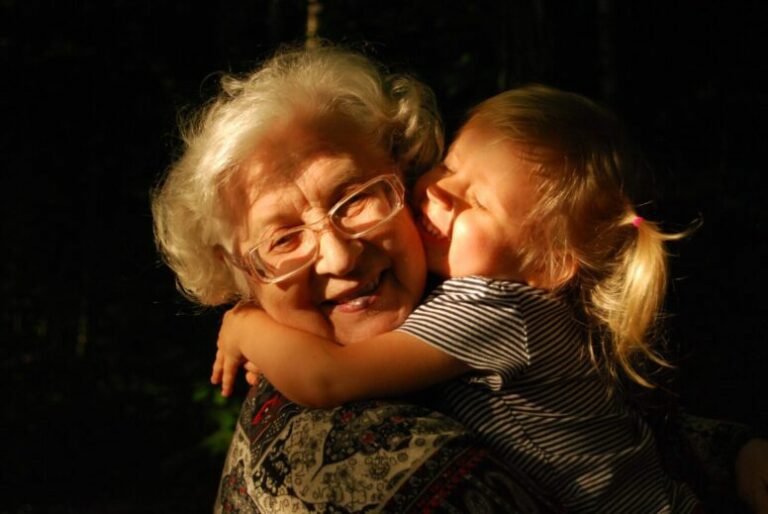Mental health is a serious concern in many communities, with those affected needing not only medical care but also love and other kinds of help. Mental health nurses are a crucial part of this equation as they provide the help those with mental health disorders need to not only recover but also live comfortable lives. Mental health nursing, also known as psychiatric nursing, remains one of the most challenging and in-demand nurse specialties, and there is always the need for mental health nurses. Below, we will explore what these nurses do, how to become one, and everything else you need to know if you are interested in this field of nursing.
An Overview of Mental Health Nursing and Nurses
Mental health nurses are specially trained nurses with advanced knowledge in the diagnostic assessment and treatment of various mental and psychiatric disorders. They provide specialized care and usually work with other healthcare professionals to ensure the best outcomes for their patients.
Because mental health affects people in different demographics, mental health nurses often find themselves working with people of all ages and from varying backgrounds. Nurses work with patients who suffer from different mental health conditions including depression, addiction, acute grief, psychoses, and personality disorders.
Because of how sensitive their work is, mental health nurses must be able to form binding connections and relationships with their patients. They also work and create relationships with their patients’ families.
What are the Primary Roles of Mental Health Nurses?
The roles and responsibilities these nurses have depend on their patients as well as the healthcare institutions they work for. However, their roles are typically standardized. Additionally, with the type of training they have, they can perform any of these roles perfectly.
One of the most important responsibilities for mental health nurses is assessing and evaluating their patients to see the extent of their mental health challenges. Once they have done this, they have to come up with treatments and care plans. These are usually personalized because, as we said, different patients will require different types and levels of care. They will also observe their patients and observe their progress so that they know whether they need to adjust their care plans.
Mental health nurses will also help their patients develop coping skills while checking their environments to remove factors that could make these mental health issues worse. If there is a need, they also administer psychotropic medications and help monitor the effects of these medications.
Additional roles and responsibilities include offering basic counseling, helping promote general patient health, educating their patients and their families, as well as helping their patients learn self-care techniques.
Lastly, mental health nurses are the bridge between their patients and other healthcare professionals. They help coordinate care while conferring with other professionals about the best cause of treatment.
From all the above, it is easy to confuse mental health nurses with psychiatrists. Many of their roles and responsibilities overlap, but nurses lean more towards the care side while psychiatrists lean more towards long-term care.
The Roles of Different Nurses in Mental Health Nursing
Within the field of mental health nursing, the responsibilities individual nurses take on depend on their education and experience. Practical Nurses, also known as Licensed Practical Nurses (LNPs), are tasked with providing care and dispensing medication. Registered Nurses, also known as RNs, can perform assessments and even provide counseling services.
Even though mental health nurses are trained to work with varying demographics as we have seen above, some of them specialize in the treatment of children adolescents, or adults because all these groups have different mental health needs. Some also focus on specific clinical treatment areas such as eating disorders.
Comparing Mental Health Nurses and Professionals
All mental health nurses are trained to be nurses first but have additional training. They can work as nurses, but their roles resemble more of a mix between nursing and psychiatry. They are also differently trained and offer something different compared to social workers and psychologists.
Because of their training, the way they approach treatments is very different from how other nurses approach them. They understand the role of the mind on positive healthcare outcomes and keep that in their minds throughout all their interactions with their patients.
For example, they may look at environmental factors affecting a patient’s health while helping their patients learn to cope with their environments better. This approach means they do not have to rely on medication or other psychotherapy practices to get great outcomes for their patients.
Psychiatric nurses can advance their education to perform the same roles as psychologists and psychoanalysts. With these qualifications, they can prescribe medication, diagnose mental health issues and work alongside specialists in mental health.
Are You Suited for a Career in Mental Health?
As with all nursing specialties, there are certain qualities you should possess to be a mental health nurse. You should be interested in behavioral disorders and mental health illnesses because this is what your career will be about. You should also genuinely care about people and be non-judgmental, empathetic, and compassionate.
Next, you must have amazing communications skills. Remember, you will need to know how to talk to not only your patients, but also their friends and family.
Critical thinking, problem-solving and emotional stability are also a prerequisite. You should have strong attention to detail. Mental health patients are very challenging, and you have to keep an eye on them while also observing any changes in their behaviors, demeanor, body language, or personality.
Lastly, you should be flexible and adaptive. The environments you work in will be challenging and might require you to work long hours. You might also be asked to work in environments you’re not familiar with or need to do so for the sake of your career.
Becoming a Mental Health Nurse
You will often hear mental health nurses called psychiatric mental health nurses (PMHNs). However, there is no difference in the training they undergo; it is just that titles can vary from location to location and from one healthcare institution to the other.
To become a mental health nurse, you need to first complete a nursing program. Many of these programs offer clinical rotations where you get to experience what psychiatric nursing entails. Volunteering at organizations that provide these services can also give you an insight into working in this field.
There are three main nursing programs to choose from: associate degrees, diplomas, and degree programs. The associate degree program is a two-year program, the diploma takes three years and then there are Bachelors of Science in Nursing (BSN) degree programs that take four years.
If you already have a bachelor’s degree and want to get into nursing, you should also consider accelerated BSN programs. These usually take about 16 to 24 months to complete. There are also distance accelerated nursing programs to help you transition from your current career into nursing. You can learn more by visiting the Marymount University website to see what their accelerated BSN program offers. Click here to learn everything about this program.
Once you earn your degree or diploma you must pass the Registered Nursing licensing exam. Many universities will prepare you for the exam and there is additional material on what to expect and how to pass the exam.
The American Psychology Association also recommends that all mental health nurses complete training in pharmacology. They must also be trained in social and behavioral sciences.
Psychiatric Nursing Certification
All registered nurses who want to become mental health nurses must get the required certification. The certification requires that you have practiced as a registered nurse for at least two years, have over 2000 hours of work in a mental health facility, and have over 30 hours of training in mental health. The last two conditions have to be met within three years of graduating.
Additional Training
Mental health nurses don’t have to always work with patients because many of them are in leadership advocacy or even legal positions. For these career options, you have to get additional training. The best way to do so is to complete a master’s program or earn a doctorate. Doing so means you become an Advanced Practice Registered Nurse who can work outside mental health positions.
What to Know About Mental Health Nursing
Now that you understand the role of mental health nurses in our communities and how to become one, is there anything else you need to know about this field? Everyone should understand that mental health nursing is also being affected by the ongoing nursing shortage.
The demand for mental health services has been rising over the years mainly because of the pandemic and more people having health insurance. There is also diminishing stigma surrounding mental health leading to many more people seeking these services. A void naturally forms because of these conditions and there is a massive demand for nurses to fill these positions.
Communication Skills are Crucial
Even with all their training, nurses who are not able to communicate clearly and listen intently do not make good mental health nurses. Mental health demands a lot of sensitivity and compassion and that comes across in the way nurses talk and listen to patients. Communication skills are also important in helping nurses help their patients deal with challenging mental disorders.
Mental health nurses are also routinely called in to empower their patients with their words through encouragement and instructions. Nurses must not only know what to say in these situations, but they must also be able to check their tone, volume, voice, and body language.
Community-Based Mental Health Nursing Might Be the Better Option for You
Many mental health nurses work in community settings. This means many of their patients are seen at their homes, receiving the additional care and help they need at healthcare practices, mental health facilities, and local clinics.
These work environments often have hours that closely resemble what you get when you work in other settings. This predictable work schedule might be better for you if you are a parent, for example. Just know that you will end up working outside the hospital which changes a lot of things such as the healthcare professionals you get to work with and your compensation package.
Hospital-Based Mental Health Nursing is Less Predictable
Working in a hospital means you have less predictable hours. You might be called in to cover a shift or be required to work additional hours. However, it does come with some perks too. You can complete all your full-time hours before the week is over so you have some free time.
The compensation for hospital-based mental health nurses is also much better due to the nature of the work and their work environment.
Continuing Education is Important
To become a mental health nurse, you need additional certification in addition to your degree or diploma. However, nursing is always evolving, new research is being released, and new practices are always being implemented. For all this, you require additional training to keep up. Learning on the job might work for new nurses, but nurses with some experience might need additional training through seminars, classes, and in-person training.
Psychiatric Nurses Are Compensated Very Well
Psychiatric nurses remain in very high demand meaning that it is a very rewarding specialty as a result. According to various sources, the average pay for a mental health nurse is about $32 an hour. Experience and additional qualifications will factor into these numbers because nurses who have been in this specialty for long will often have additional responsibilities.
In addition to great compensation, mental health nursing also offers job stability. These nurses are expected to remain in high demand for at least a few more decades. The role of the mental health nurse is also likely to evolve so they are much more involved as hospitals move towards providing holistic healthcare.
Mental health can affect anyone and when it goes, we need the right level of care. Mental health nurses are an important part of the healthcare system as they make possible the provision of the right level of mental health care. Considering how essential they are to our communities, you could consider becoming one. This process is not as involved as you might think, and you will still be a nurse should you find mental health nursing not to be right for you.











